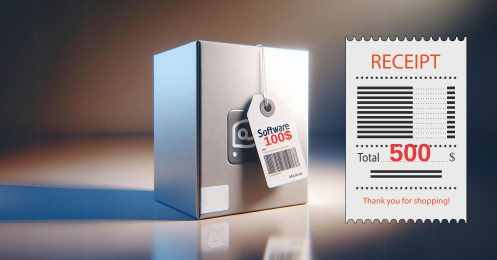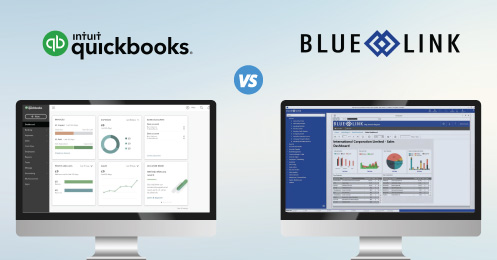Quite often we speak with prospects who have been burned in the past by distribution inventory software vendors, and as a result have become cynical about the process and skeptical of all other vendors. This is understandable given the huge amount of resources they would have wasted by choosing the wrong software vendor. However, it should not deter them from starting the process again. Allowing a past experience to stop you from engaging with other vendors to find the software system you need to grow and thrive, is like punishing yourself for the sins of others. There are many things you can learn from such a negative experience, to help you find the right system. We have set out a few of these below.
Size matters.
An often-overlooked aspect of selecting an ERP software vendor is company size. Working with a vendor similar in size to your business can be beneficial, as they will have a better understanding of your available resources, business goals and priorities, and budget. This becomes even more apparent if you’re a small business as big, brand name vendors tend to prioritize their larger customers before their smaller ones.
Stay away from vendors who say they can provide all the functionality you need.
No two businesses are exactly alike, so a vendor who claims they can do “everything for everybody” is most likely exaggerating their capabilities. Although you want the vendor who best meets all your needs, look for an honest “no” when asking them about their functionality. A trustworthy vendor is one who is not afraid to be open and honest about their capabilities and limitations, and is willing to really get to know your business in order to determine if they are the best fit.
Make sure you compare proposals as apples to apples.
Although no decision should be made on price alone, it can be easy to select the less expensive proposal when choosing between vendors. However, unless you’re comparing apples to apples, this can be a costly mistake. It is important to understand each component of a proposal and compare them across vendors – are both implementations on-site? Is training scheduled for a few days or a few hours? Will the vendor do the data migration or is left to the customer? Differences in these services and components will drastically impact the costs and success of an implementation, and these details tend to vary widely from one vendor to the next.
Question a vendor’s implementation and project history.
When asking for references from a vendor, it is important to ask for ones that are both good and bad. It is unlikely that a vendor has never had an unsatisfied customer, but how they dealt with this customer will give you better insight into how they treat their customers after making the sale. A quick Google search should also reveal some insightful information on the company’s implementation history.
Be cautious when it comes to price discounts and be sure to read the fine print.
Getting a price discount can provide relief from a large initial investment, but make sure you fully understand what the discount entails as they can often lead to price increases in the future. Although many vendors will provide honest price discounts to help businesses afford all the components they need, be wary of time sensitive and unwarranted discounts. A time sensitive discount in which a vendor cuts the price in order to close the sale faster, may lead you to make a quick decision without getting all the information. An unwarranted discount such as one given “just because we like you” is often misleading and both types of discounts may cause the original cost to increase in the years to come. In any case, make sure you question the implications a discount has on future costs and read the fine print in order to get the full story.
Don’t discount software technology because of a bad experience with a vendor.
Many distribution inventory software systems use similar technology, and so it is important not to discount the technology previously used when it was the vendor’s lack of training, support and integration that caused issues. There is a reason that vendors share similar technologies and you may be giving up on one that is best suited for your needs. Try to discern between technologies that are a bad fit and a vendor that is a bad fit, and don’t give up on a technology just because of a negative experience with a vendor.
Unfortunately, no matter how careful and engaged in the process you are, you may still get burned by software vendors who are misleading and dishonest. However, it is important to realize that it is just as much your responsibility as it is the vendor’s to find a system that best fits your business. If you have been burned by a vendor in the past don’t let it stop you from getting the system you need, but rather learn from the experience so that you are better equipped when starting the search again.










